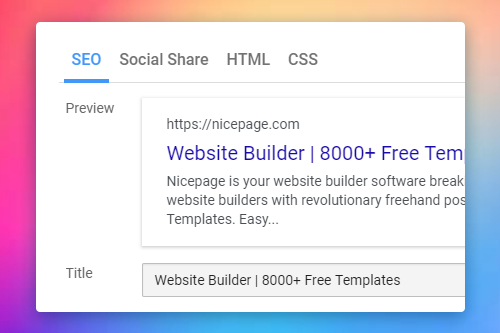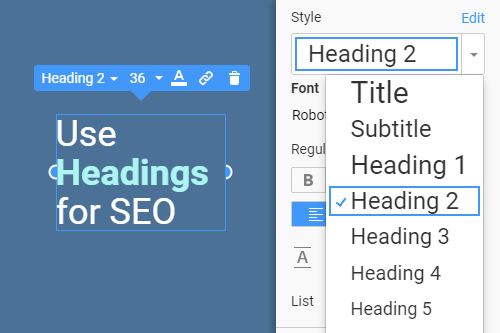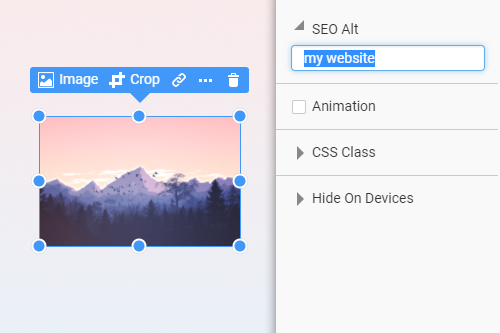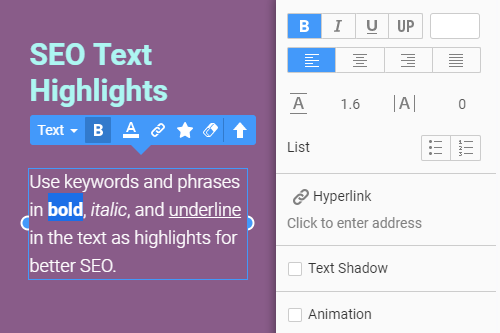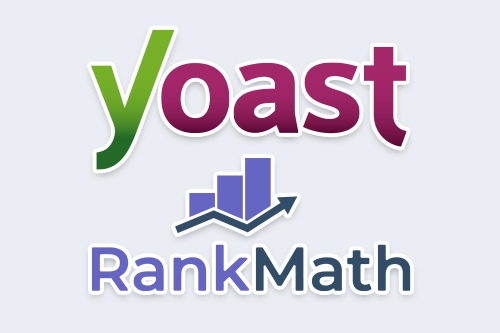How to use Search Engine Optimization effectively

Export Minimal CSS Per Page
As an option, you can export a minimal CSS file for each page, containing only the styles necessary to display that page. By default, the option is disabled, and you can enable it in the Site Settings. Each CSS file is about 10 times more compact. It improves page loading score, which is important for Google SEO.
Importance of the Search Engine Optimization (SEO)
A search engine optimization process improves your website's visibility when people search for products on Google, Yahoo, Bing, and more search engines. SEO is a term that stands with search engine optimization, which assists your page to rank higher on Google and in other search engines for related, targeted queries. Consequently, you can attract more user clicks and more traffic to get Search engines to rank sites based on how often each website used a particular keyword. When you type in a search request, Google's algorithm determines the most relevant. It will then list relevant sites according to their relevance and popularity - with other ranking indicators - and show them for you on a page called the industry's search engine results page. You can't pay for search engines to get better rankings in organic search rankings, which means that SEOs have to put in the effort. HTML tags help search engines understand the content. The headings in the text are the critical part of search engines, as they provide content structure.
The title tag appears in a tab at the top of the browser. You can make sure your site and content are optimized for these factors to help your web pages rank higher in search results. The page titles should be unique and must contain the most incorporated keyword target for the page. You can use link building, state guest posting, referring broken links to build your link-back profile. The most important thing to keep in mind about SEO is that there are no shortcuts in this game. Optimization must be integrated with your overall content marketing strategy as it leverages heavily on what is published on the blog. Link building is one of the main ranking factors in Google, Yahoo, and other major search engines. The URL should include the most important keyword of the page. You are figuring how search engines work will only be the first step in improving a site's search engine rankings.
Most social media sites do not have a direct impact on SEO. Yet, they can be an excellent tool for interacting with other webmasters and creating connections that may lead to the possibility of building links and guest posting. SEO strategies and tactics are used to get more organic search results for a particular website or series of sites. The tactics should also be avoided to prevent getting penalized by Google. In recent times, such questions as to the underlying factors of the most popular search systems, how to build an effective SEO strategy (on-page), what can you expect in the future, etc., have become very relevant. The best SEO strategy for getting into the rankings, the top search results, and staying there regularly. Even a tiny increase in search engine rankings may lead to the site getting more traffic. Tags and organized data can help structure the information on your website and help search engines do great work, and make local SEO, user experience (UX) convenient. You can see the title tag on the top of a browser tab and is displayed when your pages appear in Google.
In SEO all you need to know and understand is how Search engines in certain places require specific contextual results, suggesting information in contrast to the list of references that the traditional SERP provides. Google Search Console (known as "Google Webmaster Tools") is essential in an SEO specialist's toolkit. Google Search Console will tell you the information you need. The best SEO specialists are doing keyword research constantly. Without keyword research tools, you can't do robust keyword research. Social media with SEO marketing goes well together and can give an excellent boost to SEO efforts. Knowledge of SEO ranking factors Google will help with keyword research, determine on-page and off-page SEO possibilities and issues related to the SEO industry. Off-page SEO can help to improve your website's ranking. An effective digital marketing strategy increases web presence and searches traffic (no advertising) associated with paid search engine marketing). Use link building, content marketing, posting about your company on various sites to improve your own off-page SEO.
